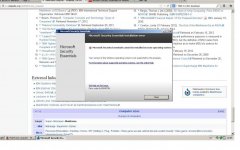Stumbled onto this Xp tidbit in today's emails:
http://www.makeuseof.com/tag/forget-end-life-woes-windows-8-xp-mode/
Looks like it won't help with your old/original Xp install. But, if you want to run XP on a W7/8 system now there's a way to do so and with Microsoft's blessings.
All that how-to is doing is taking the VHD image from Windows 7's XP Mode feature and loading it on VirtualBox.

